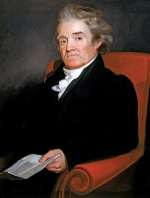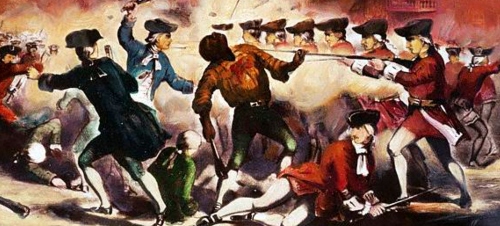The Newsletter about America's Founding
by Revolutionary War and Beyond
Let us aspire to the greatness our Founding Fathers imagined for us.
Issue #4 - November 27, 2012
Hello!
We apologize that we have not sent out our newsletter for the past several months. We hope to get back on track with it from here on!
We will be changing the newsletter to a monthly newsletter instead of a bi-weekly newsletter and the newsletter will be shorter, since we found we were just duplicating what was already available on our site.
Each newsletter from now on will simply focus on the new content on our website since the last edition, bringing you up to date with any new material you may have missed. We will also continue the Quote of the Week and Question of the Week sections.
If you haven't already done so, we hope you will check out our new book Understand Your Rights Because You're About to Lose Them, which shows how our basic rights as American citizens are under threat today and what we can do about it.
As always, thanks for reading with us...
The Minuteman
Quote of the Week
We recently posted this quote about voting from Noah Webster on our Facebook page and it got an enormous response, so we decided to use it for our Quote of the Week:

Noah Webster
"When you become entitled to exercise the right of voting for public officers, let it be impressed on your mind that God commands you to choose for rulers, ‘just men who will rule in the fear of God.’ The preservation of government depends on the faithful discharge of this Duty; if the citizens neglect their Duty and place unprincipled men in office, the government will soon be corrupted; laws will be made, not for the public good so much as for selfish or local purposes; corrupt or incompetent men will be appointed to execute the Laws; the public revenues will be squandered on unworthy men; and the rights of the citizen will be violated or disregarded. If government fails to secure public prosperity and happiness, it must be because the citizens neglect the Divine Commands, and elect bad men to make and administer the Laws." - Noah Webster, History of the United States (New Haven: Durrie & Peck, 1832, pp. 336-337)
Some thoughts about the quote...
- Have you exercised your duty to vote as you should?
- What does the condition of our government today say about the American people today?
- What do you think of the idea that voting is a responsibility given to Americans by God Himself?
Share your comments and answers to these specific questions on our Facebook page here.
You can also follow our daily Facebook posts here.
American History Facts

Boston Massacre Drawing
We have just posted a large section about the Boston Massacre. It will undoubtedly reveal some interesting information about one of the most important events leading up to the Revolutionary War that you haven't heard before.
For example,
- Did you know that British soldiers were harassing the citizens of Boston for three days before the violence broke out on March 5, 1773?
- Did you know Paul Revere drew up a detailed scene of the massacre that was used as evidence in the trial?
- Did you know there were actually three trials for those accused in the Boston Massacre and not just one as is reported in most sources?
You can learn about these and all the other interesting details in our Boston Massacre article here.
Question of the Week
* * *
How many people were killed at the Boston Massacre?
* * *
You can find the answer at our Boston Massacre page.
Share your answer with us here on Facebook or Twitter...
And look for the answer to the question here in the next issue!
* * *
The last edition's Question of the Week was: The first Congress passed TWELVE amendments, not ten. The states then ratified TEN of them, which became what we know as the Bill of Rights. What were the two amendments about that the states did not ratify?
The answer? The first amendment dealt with how the number of representatives per state were to be apportioned in Congress, and the second prevented Congressmen from raising their own salaries. You can read the original twelve amendments here.
On This Day in History
We have begun a brand new section of our website called On This Day in History. It is a daily post showing an important event related to the American Revolution, the Founding Fathers and the Founding period of the United States.
You can follow the daily posts on our Facebook page here or on our Twitter page here.
You can also go to our On This Day in History page here, where you can see all the daily posts. If you use an RSS reader to receive new posts from your favorite websites, you can sign up for our new posts using the orange RSS box in the left-hand column and you will receive the daily posts in your own RSS feed.
Some of our more popular recent posts include:
Patriotic Books and Gifts for Christmas

The Prayer at Valley Forge
If you are looking for some patriotic books or gifts for Christmas gifts, you might like to check out the Patriotic Books and Gifts section of our website.
We have the painting Prayer at Valley Forge by Arnold Friberg. This is the number one best selling item on our site.
We also have a large selection of:
- Patriotic Jewelry, including some really neat rings, flag pins, military watches and other red, white and blue jewelry.
- Patriotic Coins, including collector's items from the Franklin Mint and the Bradford Exchange.
- American Patriot's Bible, which shows the influence of the Bible on America's founding.
- Opus Americana, a book created by a United States Marine about America's heritage.
- and more, including a Revolutionary War chess set, patriotic stamps, American History magazine and a large selection of American flags.
You can see all of our patriotic books and gifts here.
Advertise in this newsletter, or on our website, and be seen by people interested in the American Revolution - and beyond!
Check out these new and updated pages on our site
The Quartering Act of 1765 - The Quartering Act of 1765 required American colonists to house, feed and buy supplies for British troops in the colonies. Colonists rebelled against the Quartering Act that Parliament shut down the colonial government of New York until it agreed to comply with the Act.
The Declaratory Act - The Declaratory Act was passed along with the repeal of the Stamp Act to make the point that Parliament did have the authority to tax the colonies, revealing that, even though the colonists won the repeal of the Stamp Act, there would be many more taxes and unjust laws to come.
The Townshend Acts - The Townshend Acts were a series of five acts passed by Parliament raising new taxes on paper, glass, lead, painters' colors and tea. The Acts also created a new regime of customs commissioners, gave greater jurisdiction to royal naval courts manned by Crown-appointed judges and removed the right of trials by jury. Understanding the Townshend Acts is one of the keys to understanding the build up to the American Revolution.
* * *
If you like these email newsletters, please forward them or share them with your friends!

Thanks for reading American Beginnings with Revolutionary War and Beyond.
Until next time...
The Minuteman
* * *
Subscribe to this newsletter here - American Beginnings Newsletter.

